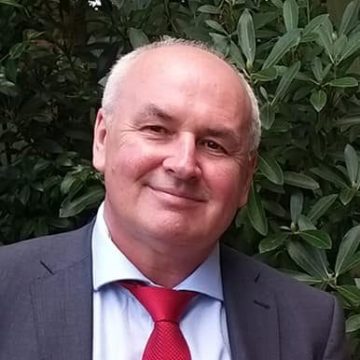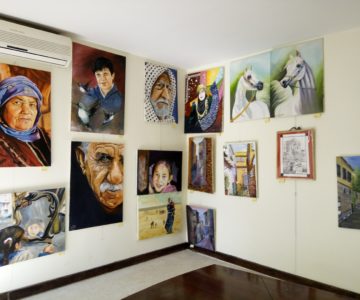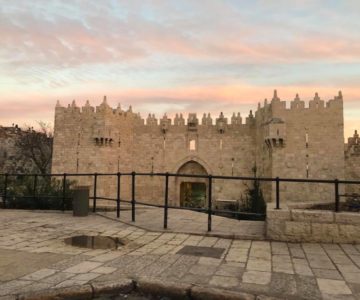COURSE DESCRIPTION
Politicians, Paramilitaries, and Peace
CRDC’s summer course takes students to Belfast, Northern Ireland, to learn about the linkages between the political and grassroots levels in a conflict that has evolved significantly over the last 50 years but still faces challenges of reconciliation and integration.
Through site visits and guest speakers, students will see the impact of partition and witness how Northern Ireland and the Republic developed differently following this key moment in their histories. We’ll examine the linkages between the Civil Rights Movement in the United States and the events of the 1960s in Northern Ireland and visit the peace walls in Belfast to study their relationship to paramilitary groups’ ceasefires. The class will visit the Northern Ireland Assembly at Stormont to hear from political parties and politicians involved in the negotiations of the 1990s and will also hear firsthand accounts from civil society organizations and grassroots organizations, such as women’s groups and ex-combatants’ groups.
In both Belfast and Derry/Londonderry, we’ll examine how the post-conflict scenario evolves and delve into the challenges of a process that is frozen in the period of conflict management rather than moving on to conflict transformation and conflict resolution. The course will examine how the theoretical works out at the practical level and raise the question of what model of government is best suited to such a society.
During our stay in Northern Ireland we will engage in conversations with the
following organizations/institutions/individuals (among others):
• Representatives from the Irish Department of Foreign Affairs, the US Consulate in Belfast, the Northern Ireland Housing Executive, and the Belfast City Council
• Visit Crumlin Road Gaol to hear how British prisons contained paramilitary
prisoners
• Take a tour of Belfast City Centre and learn about the impact of the IRA
bombing on the people and places of the city
• Tour Belfast interface walls (peace lines) to see how an ethno-political polity relates in a
post-ceasefire society, to oppose and promote peace and tell stories about the
conflict
• Meet with local representatives from grassroots peacebuilding groups in
Nationalist and Unionist communities to understanding how peacebuilding is
innovated at the everyday level within and between a divided society
• Visit Derry/Londonderry to compare and contrast how Northern Ireland’s two
main cities shape and deliver peacebuilding programmes
• Visit the Giant’s Causeway, Titanic Quarter, and Games of Thrones sites to
understand how tourism promotes post-conflict peacebuilding and through
“bubbles of peacebuilding” regenerates a regional economy for a global market
• Meet practitioners working on and dealing with peacebuilding, conflict
transformation and reconciliation in Northern Ireland at the everyday level.
Please note that the final itinerary is subject to change.
Eligibility: This course is open to all Mason and non-Mason bachelors, masters, and Ph.D. students as a 3-credit course, and to non-students as a professional development seminar.
Program Fee: The course fee of $3,890 covers 3 credits, shared hotel rooms for all nights of the course, 2 meals per day, in-country ground transportation, cultural excursions, entrance fees, and course trainers’ and speakers’ costs. It does not include airfare.
Instructors: The GMU instructor for the course is Dr. Marc Gopin, director of the Center for World Religions, Diplomacy and Conflict Resolution (CRDC) and James H. Laue Professor at the School for Conflict Analysis and Resolution.
The overseas instructor, Dr. Seán Brennan, holds a Ph.D. from the School of Politics, International Studies and Philosophy at the Queen’s University Belfast (QUB). Seán’s research focuses on the challenges loyalist ex-combatants encounter as they attempt to reintegrate into a post-ceasefire society through processes of Disarmament Demobilisation and Reintegration (DDR). As a peacebuilding practitioner, Seán’s work with divided communities precedes the ceasefires, peace accords and modalities of post-conflict peacebuilding, developed in the 1990s. With the award of an MA in Peace and Conflict Studies (University of Ulster) in 1995 Seán drew on normative theories of peace research, developed by Kenneth Boulding, John Wear Burton, Johann Galtung and John Paul Lederach, to design and deliver community relations, community development and peacebuilding programmes for marginalised and disadvantaged communities attempting to take opportunities arising from the peace. From 2004-2013 he worked in North Belfast with a range of community/voluntary, statutory and academic institutes, such as QUB, UCLA, Boston College and Stanford University, to develop peacebuilding programs. In 2008 his QUB-accredited Peacebuilding in Interface Communities program was short-listed for the Times Higher Education Awards. Seán has also worked in a number of contested and post-conflict societies, from Cyprus and Azerbaijan to Poland, Nigeria and Moldova.
ITINERARY
No Itinerary Found
PROFESSORS
-
 Marc Gopin, Ph.D.
Designation: Director and James H. Laue Professor
Marc Gopin, Ph.D., is the James H. Laue Professor of World Religions, Diplomacy, and Conflict Resolution and the director of the Center for World Religions,...
Marc Gopin, Ph.D.
Designation: Director and James H. Laue Professor
Marc Gopin, Ph.D., is the James H. Laue Professor of World Religions, Diplomacy, and Conflict Resolution and the director of the Center for World Religions,...
-
 Seán Brennan
Designation: Northern Ireland Local Expert
"Dr. Brennan is an amazing instructor." "Seán was fantastic. He did an incredible job of matching lectures to the daily interviews." "The program with Dr....
Seán Brennan
Designation: Northern Ireland Local Expert
"Dr. Brennan is an amazing instructor." "Seán was fantastic. He did an incredible job of matching lectures to the daily interviews." "The program with Dr....
COURSE FEATURE
- Price: $3950
- Type: Study Abroad
- Credits: 3 credits
- Duration: 8 days
- Level: Graduate, Undergraduate, or Professional Development



SYLLABUS
No Syllabus Found